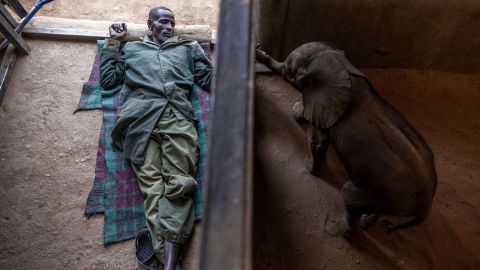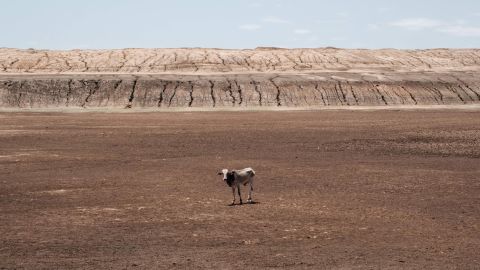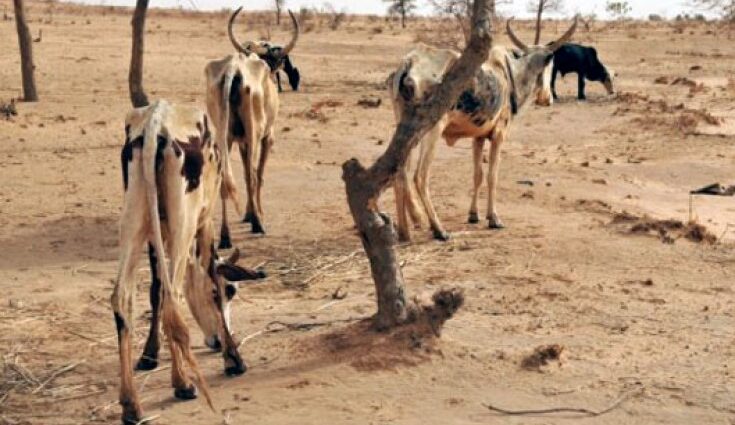Hundreds of elephants, wildebeests, and zebras have died across Kenya amid the nation’s longest drought in decades.
“The Kenya Wildlife Service Rangers, Community Scouts, and Research Teams counted the deaths of 205 elephants, 512 wildebeests, 381 common zebras, 51 buffalos, 49 Grevy’s zebras, and 12 giraffes in the past nine months,” a report released Friday by the country’s Ministry of Tourism said.
“The drought has negatively impacted on the herbivore populations and particularly wildebeest and zebra.”
Prolonged drought across the Horn of Africa over the past four consecutive rainy seasons has left some 18 million people affected by food shortages in Somalia, Ethiopia and Kenya, according to reports from the World Food Programme.
The UN’s World Meteorological Organization said the drought is the region’s longest in four decades.
In Kenya, back-to-back seasons of below average rainfall have caused riverbeds to dry up and destroyed grasslands in game reserves, according to the tourism ministry.
“The worst-affected ecosystems are home to some of Kenya’s most-visited national parks, reserves and conservancies, including the Amboseli, Tsavo and Laikipia-Samburu areas,” its report said.
At the launch of the report, Kenya’s Minister of Tourism, Wildlife and Heritage Peninah Malonza said steps were being taken to save the lives of animals – including digging boreholes and transporting water to dried-up water pans and dams.


“The drought has caused mortality of wildlife, mostly herbivore species,” Malonza said.
“The mortalities have arisen because of depletion of food resources as well as water shortages,” she added. According to the ministry, Kenya had just 36,000 elephants left last year.
In an interview with the BBC in July, Kenya’s former cabinet secretary for wildlife and tourism Najib Balala said that climate change now kills 20 times as many elephants as poaching.
Source: cnn.com Original Media SourceShare this news
This Year’s Most Read News Stories

Zanzibar liquor importers face fresh hurdle despite court order
The liquor shortage in Zanzibar is far from over, even after a court order granted relief to the three importers.Continue Reading

Zanzibar land lease controversy with British Developer
Zanzibar investment lease controversy rumbles on after President Hussein Mwinyi claims the land lease was terminated following a court case which the developer lost Contradictory details come to light.Continue Reading

New lawsuit as Zanzibar airport controversy continues
Another company joins the list as they file a petition challenging the exclusive rights granted to Dnata by Zanzibar Airports Authority.Continue Reading











